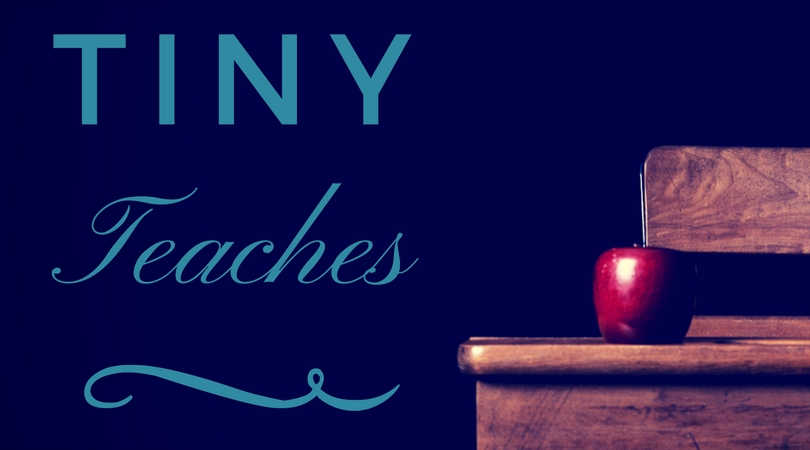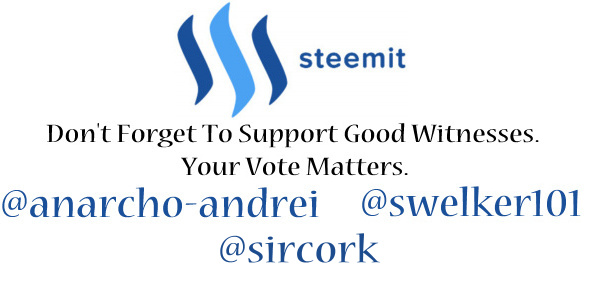Comma Splices: Forget the Hot Glue Gun. Get the Scissors!
There’s a little thing I’d like to discuss with all of you. We’ve all been guilty of it at some point. Maybe someone pointed it out to us afterwards. Maybe we discovered it ourselves. Who knows how many are still out there, lurking in all the lines we’ve ever written.
.jpg)
Original image courtesy of Unsplash.com
Tiny! Get to the point!
Yes, yes. Sorry. I’m talking about comma splices.
Comma what?
Comma splices. That’s what happens when you join two grammatically complete, independent clauses together with a comma. You basically took two sentences who were minding their own business and pasted them together.
What’s So Wrong About That?
Well, technically, nothing. Rather than a grammatical error, the comma splice is considered a style fault. It’s closely related to a run-on sentence, which joins independent clauses with a conjunction instead of punctuation.
The use use of comma splices is very much a matter of taste. There are instances in which comma splices tend to be acceptable.
- The clauses are short and closely related.
- There is no danger of a miscue.
- The context is informal.
Even when all three criteria are met, some readers are likely to object.
Well… If It Was Good Enough For Jane Austin…
Yes. You’re right. Jane Austin used the comma splice from time to time. I love Jane Austin’s work. And her comma splices have never stuck out at me.
But Jane Austin has one over on us in at least two ways.
For starters, conventions of usage in her time were not what they are now. When we read something written in a different age, it takes us back in time. I don’t go reading Pride and Prejudice and narrow my eyes at a comma splice. We love it when Mr. Darcy tells Lizzie how much he ardently admires her. If my guy said that to me, I’d laugh my way to next Sunday. Darcy rocks it, though. Time spirit.
Then we come to Jane’s second advantage. And this one goes for many style faults or broken rules. Only do it if your ass is famous.
Consider this one a rule. Is it a fair rule? No. Does it exist? Yes. Why? If you’re famous, people will assume you know what you’re doing and think you did it on purpose. If you’re not, people will point and say, “Look at that rookie trying to be a writer. Can’t even spot a comma splice.”
So How Do We Fix It?
Well, get rid of it, of course.
Let’s use an example I recently had the pleasure of crucifying a friend for. Don’t worry. He survived the ordeal.
He must have come straight from work, the smell of sea and fish clung to him.
There are a few ways we could think of to fix this.
- The simplest would be to replace the comma with a period so the two clauses are no longer joined together.
He must have come straight from work. The smell of sea and fish still clung to him.
- When both sentences are very, very short however, it might not suit the atmosphere we’re trying to create. So we need to get creative. Add a conjunction to show that the two sentences are, in fact, connected to each other.
He must have come straight from work, since the smell of sea and fish still clung to him.
- Another option would be to adapt one of the two clauses so that one of them is no longer independent. We could… maybe… make the second part a modifier for the first.
He must have come straight from work, the smell of sea and fish still clinging to him.
These are just a couple of examples of how to escape when you’re being stalked by comma splices. Are there more? Yes. Tons. Do you need to know them? No.
What you need, is to be able to recognise a comma splice when you see it, and break out those scissors.
OK. Fine. We Get the Message.
Well, I do hope I was able to make this easier to understand, somehow. Thank you all for putting up with my preaching.
For this article, I did some research. Wikipedia told me about Jane Austin’s use of comma splices. Purdue OWL contains a lot of info on all questions concerning grammar. This is where I found the proper grammatical names for things, as most of those are only known to me in Dutch. ;-)
Thank you so much, @jasonbu, for proofreading this for me. You're the best! And thank you @rhondak and @bex-dk for planting the subject matter in my head. Thank you to each and every member of The Writers' Block for the constant support and encouragement you provide. Last but not least, @johnkingwriter, thank you so much, darling. You know why. ;-)
My #TinyTeaches series have their home on my brand new, shiny, oh so pretty non-fiction SteemShelf. If you’d like to see the other posts I’ve written on the subject of writing, feel free to go and have a look.
If you have any suggestions for my next #TinyTeaches post, or a question you’d like answered, I encourage you to post it in a comment below. I will try my very best to accommodate your request.
Hugs
Tiny
The Writer’s Block is a home to writers from every corner of the world, and from every discipline that involves the written word. I consider myself lucky to have found this amazing community. Not only have I found help, support and encouragement there, but I’ve found people who feel the same way I do about writing. I’ve found a second family there. Do you write? Would you love to be a part of a community that can help you learn and improve your writing skill? Our door is always open for kindred spirits. Come and pay us a visit by pointing your pointy thingie right here and clicking.


I hate comma splices. Sentences deserve to have length. Dutchies are kings of long sentences.
Three independent clauses would make a fine, ridiculously long sentence from my Dutchie perspective ;)))
Well, I agree with you. Dutch lends itself to run-on sentences much more than English does. But sometimes you want the prose to be a little bit more staccato. Choppy. It depends on the atmosphere you're trying to create.
True, depends on the build up very much!!
Excellent written and very useful information! As a matter of fact, just made me spot some cases in my writings. Thanks!
Wow. Thank you so much! That's the best compliment I could hope for.
Tiny, you sound like a grammarian! Have we ruined you forever? kidding aside Not sure I could have done this better myself. Now, the big question--does this explanation help nongrammarians? If not folks, speak up NOW while Tiny can still edit it!
Yes, please. If anything is unclear, don't hesitate to let me know!
Nice work Tiny! I'm getting better at recognising these little bastards but the terminology eludes me.
Thank you, John. I tried to translate it to humanspeak. ;-)
Oh, I've been ripped by the comma splicer before... It's nasty and can run rampant through an author's muse. Great guide and good for awareness.
Well, I suspect we all succumb to its seductions from time to time. ;-)
Thank you so much for explaining. Punctuation is hard for me to use properly and comma's are the hardest. I think I have to save this blog to read again when I start to doubt if I understood right.
You're welcome. I'm an ESL writer, too. I know how hard it can be when your mind wants to swap languages. At least, I'm assuming you're a native Dutch speaker? Going by your name?
We zijn met een drietal in The Writers' Block. Je bent altijd welkom. ;-)
Yes I am dutch. I assume ESL means English second language? I indeed have a hardtime translating sometimes.
Dank je wel. Fijn dat ik welkom ben. Kun je wat uitleggen over wat The Writers' Block inhoudt?
The Writers' Block is een schrijverscommunity. We helpen elkaar om onze vaardigheden in het schrijven aan te scherpen. De meerderheid schrijft in het Engels, ook al zijn we niet allemaal native speakers. Maar we zijn sinds kort ook met een language specific kanaal begonnen waar we elkaars Nederlandstalig schrijfwerk ook proeflezen.
Wat leuk, hoe meld ik mij aan? Wat word van mij verwacht en hoe weet ik of mijn taalvaardigheid hoog genoeg is?
Het is een Discord server. We hebben mensen van alle vaardigheids niveaus. Zowel wat betreft Engels taalgebruik als schrijfvaardigheid. ;-)
Deze link brengt je tot bij ons. :-D
Aangemeld. Dank je wel!
I hate the comma splice, but I also loathe when a writer continually opts for the semicolon to solve the problem—I find that so distracting.
You know what I do love? Talking about punctuation!
Well I do too. It matters. Period. ;-)
Great article on a subject that could be really boring . You convinced me to check me own work for comma splices !
That's the best compliment someone could give me. Thank you!
I've never thought that comma splices were bad. After reading the examples a few times, I realized that it sounds pretty weird in my head. It's like reading two separate sentences crammed into one. I'm going to try and remember to not use comma splices anymore. Thanks for the little lesson!
You're welcome. If you have other things you'd like me to write about in this series, please don't hesitate to let me know about them.
nice work.i will wait for your next post......thanks for sharing
Leaving generic comments like this, is not helping you build a following. If anything, it's going to be counterproductive. It tends to annoy people. You'd do much better if you actually read the post and wrote a meaningful comment that shows us that you read it. Engage the author in a discussion. Interact.